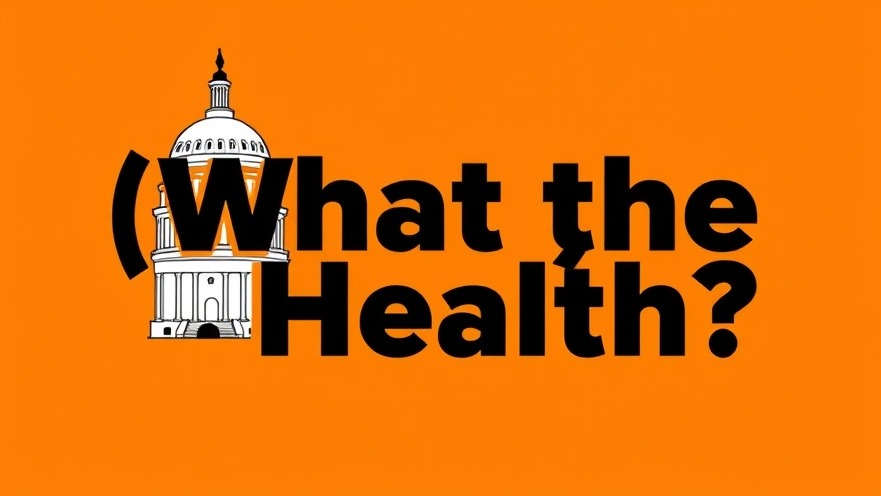
Understanding Recent Changes in U.S. Vaccine Policy
The ongoing evolution of vaccine policy in the United States has encountered a significant shift with Health and Human Services Secretary Robert F. Kennedy Jr. at the helm. In a surprising move, Kennedy dismissed all 17 members of the Advisory Committee on Immunization Practices (ACIP)—the very group responsible for advising the Centers for Disease Control and Prevention (CDC) on vaccine-related decisions. This committee, composed primarily of immunology experts, has provided crucial recommendations aimed at safeguarding public health through evidence-based immunization strategies. Despite Kennedy's initial assurances to lawmakers during his confirmation hearing that he would maintain neutrality over vaccine panel affairs, this decision has alarmed both healthcare professionals and the general public.
The Public Outcry and Internal Dissent
As news of this upheaval broke, hundreds of employees from the National Institutes of Health (NIH) made headlines by collectively voicing their dissent against the current administration’s policies. They likened the ongoing changes to those made under previous administrations, indicating a broader concern about the long-term implications for public health priorities. Their letter, known as the "Bethesda Declaration," condemns actions perceived to undermine NIH's foundational mission. The very act of NIH employees publicly signing their names reflects deep-seated frustrations over the potential risks associated with shifting focus away from science-driven policies in favor of political alignments.
Concerns Over Vaccine Readiness
In ultimately distancing itself from established vaccine research, the Department of Health and Human Services took another step backward by canceling contracts for private-sector exploration into innovative mRNA technologies for vaccines against bird flu and HIV. This decision raises substantial concerns regarding the nation’s preparedness against emerging health threats. Health experts warn that stifling advancements in vaccine development could have detrimental effects on public health, particularly as we navigate an increasingly unpredictable landscape of infectious diseases.
Political Ramifications and Legislative Responses
The political implications of Kennedy's decisions cannot be underestimated. Senate Health Committee Chair Bill Cassidy has remained notably quiet regarding this breach of trust—a move that could suggest reluctance to confront potential backlash from constituents who are wary of diverging from established health advice. This juxtaposition illustrates a growing rift within healthcare policy discussions and highlights the importance of accountability and transparency in decision-making that affects public wellbeing.
The Future of Vaccine Policy
Predicting the trajectory of vaccine policies post-Kennedy demonstrates a critical inquiry into the role of scientific governance amidst political influences. Stakeholders must advocate for robust frameworks ensuring that any future vaccines prioritize safety, efficacy, and public trust. Active engagement from health professionals, legislators, and citizens is imperative to restore integrity and foster a collaborative environment where scientific expertise guides vaccine recommendations rather than partisan interests.
Supporting Health and Wellness in Troubling Times
As uncertainties loom over vaccine policies, focusing on personal health and wellness has never been more crucial. Individuals can bolster their immune systems and promote overall well-being through various means:
Natural Health Tips: Incorporating nutrient-rich foods like fruits, vegetables, and whole grains can help maintain a well-balanced diet.
Mindfulness and Stress Relief: Practices like meditation allow for mental clarity and resilience in facing health-related anxieties.
Holistic Wellness: Engaging in daily fitness routines and utilizing natural supplements like herbal remedies can support immune function.
By taking proactive steps towards self-care, citizens can cultivate a culture of health and wellness that encourages better responses to public health challenges.
Conclusion: Your Role in Advocating for Health
The current dialogue surrounding vaccine policy serves as a reminder of the importance of informed discussions about health. By empowering ourselves and engaging actively with health initiatives, we not only advocate for our wellness but contribute to a healthier future for all. We urge you to participate in community discussions, support local health initiatives, and explore ways you can promote wellness in your lives. Be the change in fostering a culture that values insightful health policy and personal well-being.
 Add Element
Add Element  Add Row
Add Row 



 Add Row
Add Row  Add
Add 


Write A Comment